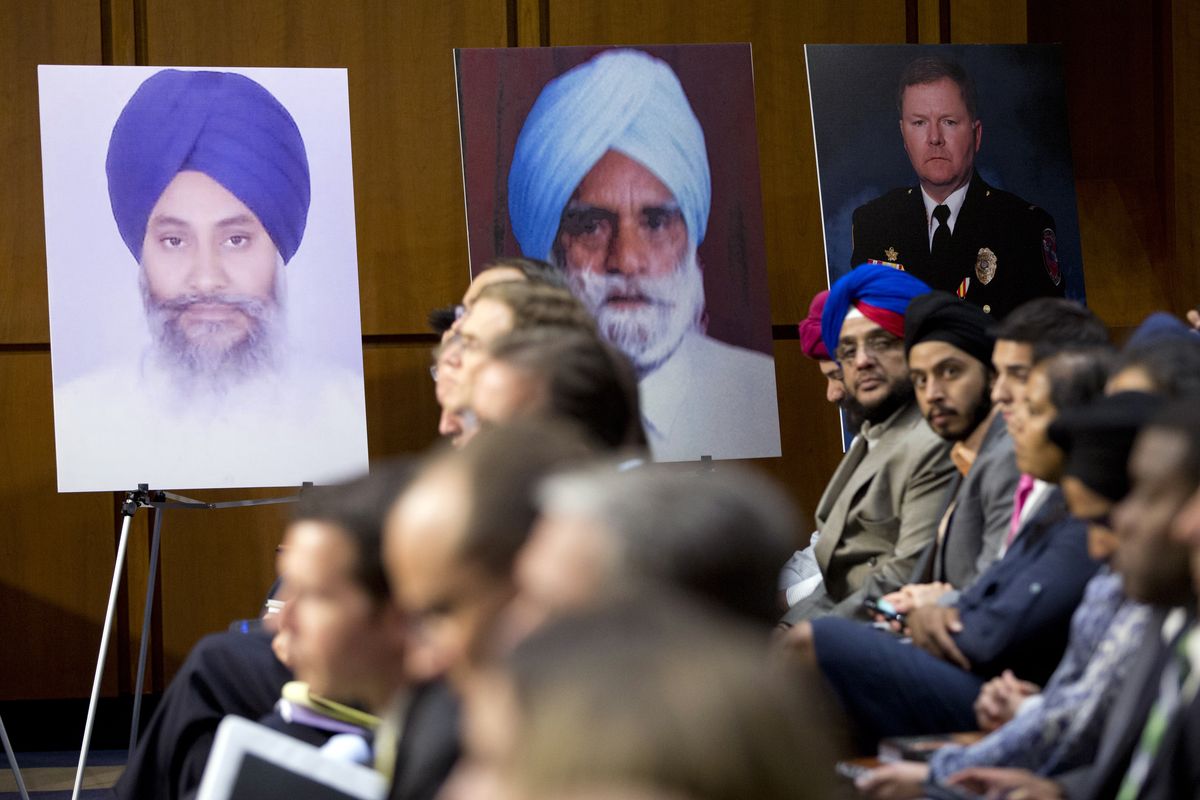FBI asked to keep data on anti-Sikh hate crimes

WASHINGTON (AP) — The son of a massacre victim at a Sikh temple in Wisconsin asked the Obama administration on Wednesday to begin collecting statistics on hate crimes against Sikhs.
Harpreet Singh Saini, 18, told a Senate hearing he wanted to give his late mother “the dignity of being a statistic.”
Saini’s mother, Paramjit Kaur Saini, was among six people killed and four wounded by a gunman on Aug. 5 before a service was to begin at the temple in Oak Creek, Wis. The shooter, Wade Michael Page, was shot during a firefight with police and died after he shot himself in the head.
More than 400 people, many of them wearing the traditional Sikh turbans, attended the hearing — a crowd so large that an overflow room had to be used.
Sen. Richard Durbin, D-Ill, chairman of the Judiciary subcommittee, said he supported Saini’s request and told a Justice Department witness that the government was moving too slowly on requests for the data collection. He noted that Sikh communities have been asking for these statistics for two years.
Roy Austin Jr., an official of the department’s civil rights division, said the agency will bring together a wide array of religious groups in October and make recommendations to the FBI on whether the data collection should be expanded to include hate crimes against Sikhs.
“The Department of Justice has heard this concern,” he said. “We are going to take action.”
Austin said the FBI’s crime reporting program, which collects information from law enforcement agencies on hate crimes, reported 6,628 incidents in 2010 — the latest figures available.
He added the government doesn’t know the real number of hate crimes because the FBI can only track crimes that are reported. He said some 13,000 law enforcement agencies reported no hate crimes in 2010 and 3,000 others did not respond to a hate crime survey.
Saini, a college freshman, said he was 10 years old when his parents brought him and his brother to the United States in 2004.
“This was not supposed to be our American story,” he said. “This was not my mother’s dream.”
In emotional testimony Saini, wearing a turban, said that two days after his mother died, he and his brother ate the leftovers she made in her last meal. He added that his mother never had the chance to get a formal education because she had to work long hours to feed her family.
“I just had my first day of college. And my mother wasn’t there to send me off,” Saini said.
He also questioned why the government never took action against Page, the shooter, because groups concerned with hate crimes had him on their watch lists.
Durbin asked an FBI witness, counterintelligence official Michael Clancy, “Was there a breakdown in intelligence here? Was he being tracked by our intelligence community? Were there any warnings to the Sikh community?”
Clancy responded, “We did not have a case opened on him. His activities had not risen to level where we would be able, under the attorney general’s guidelines, to open an investigation.
“We were aware of him as a peripheral figure. But he never emerged as more than that. He engaged in a lot of hate speech … not against the law.”
Clancy added that the FBI had no information that Page posed a threat to any group.
____
Follow Larry Margasak on Twitter at http://twitter.com/LarryMargasak